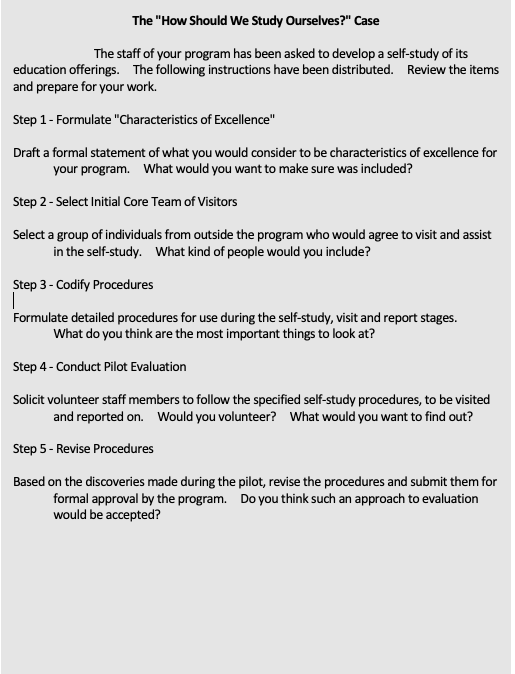In 2010, the organization that had been responsible for the development of the GED Tests for more than half a century, the American Council on Education (ACE), announced that it had decided to terminate its work on the development of a new test series and, instead, would pursue the development of a fundamentally different exam that would be more explicitly linked to assessments of college readiness. This new orientation was not so surprising since the GED Testing Service had long maintained that an equivalency diploma opened doors to postsecondary study.
In late 2009, the Testing Service had published a research report that indicated that the door opening had not amounted to much. The researchers tracked the postsecondary outcomes of a random sample of 1,000 individuals who had completed the GED test in 2003. Of those 1,000 test-takers,
- 307 enrolled in at least one postsecondary institution by fall 2008;
- 77% of those individuals dropped out after one semester;
- Only 17 individuals earned a postsecondary credential by 2008.
The open doors seemed to be shut.
The next announcement from the Testing Service, however, was a dramatic surprise. ACE announced that it had forged a public/private partnership with Pearson Publishers to develop the new exam. Although not highlighted in the initial announcement, it has since become clear that the price of the partnership will be a heavy one for test-takers in states that charge fees for the exams or for public education agencies in states, such as New York, that make the exam available free of charge. Current estimates are that each exam will cost about $120—double the current cost. Worries about the additional costs have led New York and a number of other states to launch efforts intended to find an alternative to the new GED Tests.
I’d like to propose that adult education institutions in the city might respond to the challenges of 1) an unacceptably expensive, and unproven, testing program and 2) the need to thoughtfully assess the knowledge of out-of-school diploma seekers by building upon recent work at CUNY. Specifically, I propose the creation of Adult Academies, which would offer a program of study leading to a regular high school diploma. This would likely require approval by the New York State Board of Regents but, hopefully, it will be recognized as an innovative solution and such approval could be secured.
Of the individuals taking the GED Tests across the United States in 2011, approximately 89% had completed some high school (18.1% had completed ninth grade; 27.3% had completed tenth grade; 34.3% had completed eleventh grade and 9.4% had completed twelfth grade).[1] As a result, it is likely that many test-takers had earned credits toward graduation before leaving high school and need earn various numbers of additional credits to fulfill the requirements. Such Academies would not offer courses designed to replicate high school courses, but the academic content of the courses and the range of subject matter could be comparable with the demands of college preparatory high school work. In addition, all of the courses could be designed to support the development of the multiple dimensions of college readiness identified by researchers such as David Conley.
I have a few preliminary ideas about the design of such academies:
- Students would obtain credit for a course by completing the course requirements–completing reading assignments, taking tests, writing reports, making presentations, producing products.
- In light of New York State’s adoption of the Common Core Standards, those standards would be utilized as a framework to guide teachers and to inform students. The Common Core Standards, of course, have not yet been transformed into full curricula and the assessments linked to them are still under development. It will be essential to use not the ideal representations of the new Standards but the actual curricular, instructional and assessment practices in schools as the real references.
- In order to ensure that the quality of work expected from students was at least as good as that produced by high school graduates, the Academies’ staff would work closely with high school and college faculty members to review samples of high quality student work in high schools and colleges.
- Students’ academic programs would be mapped out on the basis of a careful review of high school transcripts and a comprehensive assessment of their reading, writing and math skills (about which I would have much more to say if there’s much positive response to this proposal).
- Course prototypes would be developed through consultations with and reviews by disciplinary experts, high school and college teachers, as well as GED and college transition teachers.
Concerns about the academic preparedness of GED entrants are not new. In 1991, when I was working in the Division of Adult and Continuing Education at CUNY’s Central Office, we initiated a comprehensive re-design of our GED preparation programs to insure that coursework included substantial reading, writing and math work rather than skill-focused exam prep. Students were encouraged to prepare themselves to obtain a high score on the Tests rather than just to pass.
In the years since, the University has devoted substantial time and energy to the enrichment of its pre-GED and GED curricula and, in most instances, offers consistently high quality instruction. But, especially in recent years, it became clear that more needed to be done for those intending to enroll in college. A few individuals at CUNY began work on what was first called the College Transition Program, then the College Transition Initiative and now CUNY START. [2] Put simply, CUNY START offers an intellectually challenging alternative to remedial drill and skill remediation. Its results continue to offer encouragement about its potential. While the current expanded program enrolls mostly high school graduates, much of its core academic model was based on an assessment of the distinctive needs of GED graduates. It’s time to take advantage of good work!
I’d welcome comments and suggestions.
9/14/12
[1] For 2011, data on New York State participants was not available; however, in previous years, New York data was closely aligned with national data.
[2] For information about CUNY START, go to http://www.cuny.edu/academics/programs/notable/CATA/cti-cunystart.html.



Leave a Reply